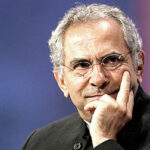Democracy is still the missing ingredient in the SGD’s
A set of renewed and enhanced Development Goals — the post-2015 Sustainable Development Goals (SDGs) — will be solemnly adopted by some 150 world leaders on 25-27 September at the UN Sustainable Development Summit in New York. UN member states are thereafter expected to frame their agendas and political policies, including overseas aid programs, according to those international targets and benchmarks over the next 15 years.
The Club de Madrid welcomes the effort made by UN Members to prioritize inclusion, giving it much more relevance than in the previous Millennium Development Goals and thus enhancing the value of democratic practice in the development process. This has been a major objective of our work in the Shared Societies Project.
We, nevertheless, continue to note the absence of a specific and direct reference in support of representative democracy. The draft outcome document of the Summit certainly mentions democracy on one occasion, somehow in passing, under a section titled ‘Our Vision’; and there is also Goal 16 claiming for the promotion of ‘peaceful and inclusive societies’, the components of which include ‘rule of law’ (16.3), ‘effective, accountable and transparent institutions’ (16.6), and ‘responsive, inclusive, participatory and representative decision-making at all levels’ (16.7).
To measure the latter, the Sustainable Development Solutions Network proposes as a single indicator the percentage of seats held by women and minorities in national parliaments and/or sub-national elected office, according to their respective share of the population. Only in this way, peripheral to the draft outcome document, is a key democratic institution such as parliament mentioned or a reference to elections made. Moreover, Goal 16 focuses on reducing all forms of violence and combating terrorism and crime, as if inclusiveness was only instrumental in this sense
The draft outcome document also refers to ‘participation’ in a couple of specific cases, namely women’s accessing political life (5.5) and local communities contributing to water and sanitation management (6.b). Participation, however, becomes a diluted concept if not anchored in representative institutions. Participatory forms of democracy are a necessary complement, not a substitute for representative democracy -needless to say, political participation of women and populations’ involvement in water management do not cover ‘all aspects of life’ to which, according to the UN General Assembly Resolution A/62/7 (2007), democracy should extend.
Non-democratic regimes have managed to create mechanisms for political inclusion — at least for political elites — and in some cases have successfully modulated participation of the population, particularly by invoking nationalist sentiments. The SDGs are aimed to improve the wellbeing of populations worldwide but they will need to be implemented at the national level. Consequently, their effective implementation will entail fundamental trade-offs and these can only be sorted out effectively and efficiently by truly representative institutions, complemented by direct, unfettered citizens’ participation.
For example, establishing climate change mitigation policies while expanding safety nets to excluded sectors of the population will often require a serious restructuring of national budgets and/or fiscal policies. Who is going to take such decisions? If the international community establishes international benchmarks to be fulfilled by countries, irrespective of the democratic character of their national institutions, governments that are still treating people as beneficiaries and not as citizens may feel legitimized.
Populations do not deserve leaders who do not consider or respect them as citizens, even if it is evident that the global consensus does not today extend to representative democracy. Current democratic leaders should not let others confine democracy at the UN level to its International Day, which we have just celebrated on 15 September. Today, it is ever more necessary to reaffirm democracy, since last few years’ celebrations have been tainted with a sense, even a warning, that democracy is in a deepening crisis.
The accelerated shift in the allocation of an increasingly diffused world power and the profound misuse of the word democracy in international relations, particularly in the aftermath of 9/11, should not alter but strengthen the convictions of democratic actors. In the midst of growing political disaffection, leaders of democratic countries who are influential, or emerging as influential, in the world order bear a substantial share of the burden, not less so when contributing to the implementation of SDGs.
The world also needs democracy today, for purely practical reasons. Increasingly educated, inter-connected and empowered individuals will not resign themselves to the role of beneficiaries, and will sooner or later take the risk of being cracked down again by authoritarian governments in order to achieve meaningful citizenship. The fate of authoritarianism is that of being constantly challenged and eventually defeated, with international and local efforts towards SDGs being jeopardized as a consequence of turmoil and revolutions. Thus the goal of sustainable development in fact depends on sustainable democratic governance. It is vital that we all contribute to create the conditions today so that democracy is sustained and future generations enjoy it as much.
Signed by;
Vaira Vike-Freiberga, President of the Club de Madrid and President of Latvia, 1999-2007
Wim Kok, Prime Minister of The Netherlands, 1994-2002, former President of the Club de Madrid
José Ramos-Horta, President of East Timor, 2007-2012, 1996 Nobel Peace Prize laureate


